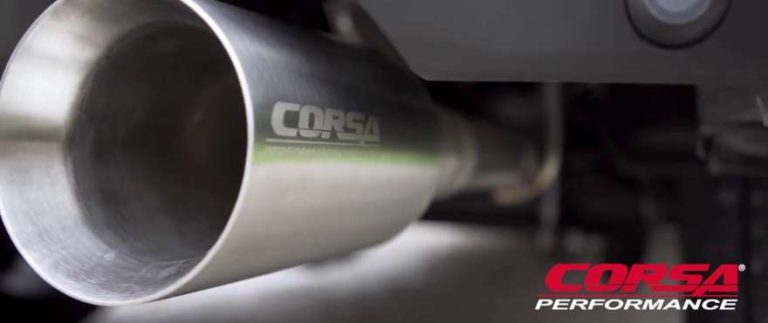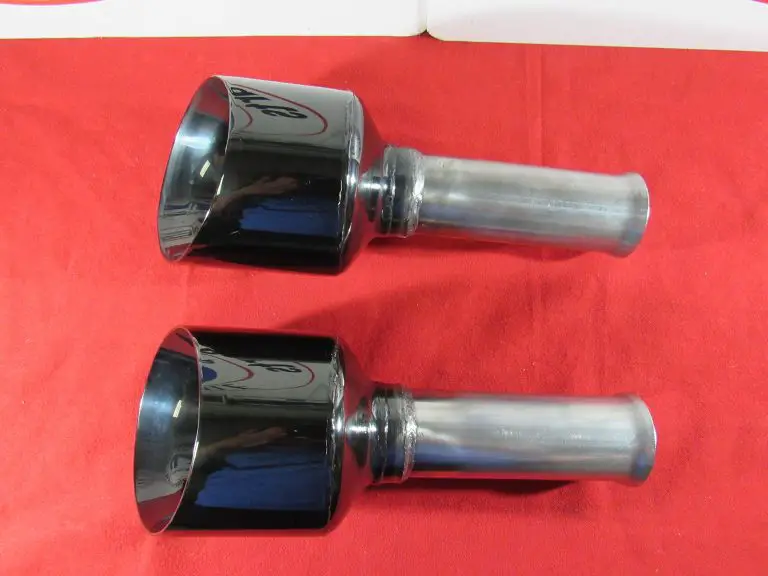Aftermarket Exhaust Compliance: Ensuring Your System Meets Regulations
Aftermarket exhaust compliance ensures your system meets regulations, ensuring legal operation of your vehicle. When modifying your vehicle’s exhaust system, it is important to consider local laws and regulations to ensure compliance and avoid penalties or fines.
By understanding the regulations and requirements, you can ensure that your aftermarket exhaust system meets the necessary standards for noise emissions, pollutant levels, and overall vehicle performance. This article discusses the importance of aftermarket exhaust compliance and provides helpful tips for ensuring your system complies with regulations.

Credit: issuu.com
The Importance Of Aftermarket Exhaust Compliance
Aftermarket exhaust compliance is crucial for vehicle owners. Compliance ensures that the exhaust system meets regulations. Compliance matters because non-compliant exhaust systems can have a negative impact on both vehicles and the environment. Such systems can lead to decreased fuel efficiency, reduced engine performance, and increased emissions.
This not only affects the vehicle’s overall performance but also contributes to air pollution and environmental damage. In addition, non-compliant exhaust systems may result in legal consequences, such as fines or penalties. Therefore, it is important for vehicle owners to be aware of and adhere to the regulations regarding aftermarket exhaust systems.
By ensuring compliance, you can promote vehicle efficiency, protect the environment, and avoid any potential legal issues.
Understanding Exhaust Emission Regulations
Understanding exhaust emission regulations is crucial for ensuring compliance with aftermarket exhaust systems. Overview of these regulations provides insight into the key standards and requirements that need to be met. Compliance involves adhering to specific emission limits for various pollutants emitted by vehicles.
Regulations vary across different regions and countries, and it’s important to stay updated with the latest guidelines. Manufacturers and suppliers must ensure that their aftermarket exhaust systems meet these regulations, including emission limits and noise restrictions. Testing and certification processes play a vital role in determining compliance.
Failure to comply with these regulations can result in fines, penalties, or even legal consequences. Therefore, it is essential to understand and adhere to exhaust emission regulations to avoid any potential issues and ensure the legality of aftermarket exhaust systems.
Evaluating Your Current Exhaust System
Evaluating your current exhaust system is crucial to ensure compliance with regulations. Identify the components of your aftermarket exhaust system. Assess if your system meets the necessary regulations and guidelines. Look for any potential issues or violations. Check the muffler, catalytic converter, and pipes for any damage or leaks.
Inspect the emission control devices and ensure they are functioning properly. Evaluate the noise levels produced by your exhaust system. Following these steps will help you determine if your system meets the required standards. Keeping your exhaust system compliant is essential to avoid penalties and maintain environmental responsibility.
So, make sure to regularly evaluate and assess your aftermarket exhaust system to ensure it is in compliance with regulations.
Upgrading To A Compliant Exhaust System
Upgrading to a compliant exhaust system ensures that your vehicle meets all the necessary regulations. By doing so, you not only stay within the legal boundaries but also enjoy several benefits. These include reduced noise pollution, improved engine performance, and increased fuel efficiency.
When selecting a compliant aftermarket exhaust, consider factors such as the compatibility with your vehicle, the materials used in construction, and the reputation of the manufacturer. By making a well-informed decision, you can upgrade your exhaust system to one that not only enhances your driving experience but also adheres to the necessary compliance standards.
So, take the time to research and choose an exhaust system that meets regulations and suits your vehicle’s requirements.
Ensuring Installation And Maintenance Compliance
Proper installation and maintenance play a crucial role in ensuring compliance with aftermarket exhaust regulations. By following these best practices, you can ensure that your exhaust system meets the necessary standards. Firstly, make sure to choose a reputable and experienced installer who understands the regulations and can correctly install the system.
Regular maintenance is also essential, including inspection for leaks, cracks, or other damage that may affect compliance. Periodically check the exhaust system for any modifications or alterations that could impact its compliance status. Regularly clean and maintain the system to prevent buildup and reduce the risk of non-compliance.
Finally, keep detailed records of installation and maintenance activities for future reference and compliance audits. Following these steps will help ensure that your aftermarket exhaust system meets all necessary regulations.
Checking Compliance With Emission Testing
Emission testing plays a crucial role in ensuring compliance with aftermarket exhaust regulations. It determines if your system meets the required standards. Testing frequency and requirements vary, so keeping up to date is essential. Regular emission testing is necessary to verify that your exhaust system is environmentally friendly and meets all regulations.
By adhering to these testing requirements, you can trust that your aftermarket exhaust system is compliant with emissions standards. It is important to stay informed about any changes in testing regulations to ensure ongoing compliance. Remember, periodic emission testing is crucial to ensure your aftermarket exhaust system meets all regulations and operates within legal boundaries.
By doing so, you can enjoy your vehicle while maintaining environmental responsibility.
Compliance Standards And Certifications
Choosing an aftermarket exhaust system that complies with regulations is crucial. Understanding compliance standards and certifications is essential. Recognized compliance standards and certifications provide assurance of quality and adherence to regulations. It is important to select products that have valid certifications.
These certifications demonstrate that the exhaust system has been tested and meets the necessary criteria. By choosing a system with a valid certification, you can be confident in the performance and compliance of your aftermarket exhaust. Whether it’s emissions regulations or noise restrictions, compliance is necessary for both legal and environmental reasons.
Your exhaust system should meet the required standards, ensuring you stay within the regulations and avoid any potential penalties or issues down the line. So, don’t overlook the importance of compliance standards and certifications when purchasing an aftermarket exhaust.
Common Compliance Issues And Solutions
Aftermarket exhaust compliance is crucial to ensure your system meets regulations. Common compliance issues often arise, but effective solutions are available. Identifying these challenges is the first step. Solutions include proper documentation and certification processes, conducting emissions tests, and collaborating with compliance experts.
Additionally, incorporating advanced technology and materials can help improve compliance. To address noise regulations, sound dampening techniques and the use of mufflers are effective solutions. Regular inspections and maintenance play a vital role in staying compliant. By adhering to these strategies, your aftermarket exhaust system can meet regulations, ensuring optimal performance and minimizing legal complications.
Stay informed about the latest compliance standards and updates to maintain your system’s compliance.
Monitoring And Enforcement Of Compliance
Effective monitoring and enforcement of aftermarket exhaust compliance is crucial to ensure that your system meets all necessary regulations. Regulatory bodies play a vital role in this process, diligently overseeing the compliance of manufacturers and sellers. These bodies monitor the market, conduct inspections, and enforce penalties in case of non-compliance.
The consequences of not adhering to regulations can be significant, ranging from fines and warnings to legal actions and the removal of products from the market. Non-compliance not only puts your business at risk but also jeopardizes the environment and public health.
It is essential to stay updated with the latest regulations and work closely with regulatory bodies to ensure your aftermarket exhaust system meets all compliance requirements. By maintaining compliance, you can build trust with customers, protect your reputation, and contribute to a cleaner and safer environment.
Future Trends In Aftermarket Exhaust Compliance
As the automotive industry evolves, ensuring that aftermarket exhaust systems comply with regulations is crucial. The future of aftermarket exhaust compliance involves staying aware of emerging technologies and innovations in compliant exhaust systems. These advancements aim to meet stringent regulations while also maximizing performance and enhancing the driving experience.
By continuously monitoring future trends, vehicle owners can stay informed about the latest compliance standards and make informed decisions when it comes to upgrading their exhaust systems. Emerging technologies such as advanced catalytic converters and improved emission control systems are paving the way for more eco-friendly and efficient aftermarket exhaust options.
Keeping up with these developments is essential for manufacturers, retailers, and consumers alike, as it ensures a greener and more legally compliant automotive industry. Don’t miss out on the future of aftermarket exhaust compliance – stay informed and stay compliant.
Frequently Asked Questions For Aftermarket Exhaust Compliance: Ensuring Your System Meets Regulations
What Are Aftermarket Exhaust Regulations?
Aftermarket exhaust regulations are rules and standards set by regulatory bodies to ensure that aftermarket exhaust systems comply with noise and emissions requirements.
Why Is Compliance Important For Aftermarket Exhaust Systems?
Compliance is crucial for aftermarket exhaust systems to ensure they meet noise and emissions regulations, minimize environmental impact, and prevent legal issues with authorities.
Can I Install Any Aftermarket Exhaust System On My Vehicle?
While you have choices, it’s important to choose an aftermarket exhaust system that is specifically designed and approved for your vehicle to ensure compliance with regulations.
How Can I Check If My Aftermarket Exhaust System Is Compliant?
To determine compliance, check if the exhaust system has undergone testing and certification by an authorized body, such as the epa, carb, or local regulatory agencies.
What Happens If I Don’T Comply With Aftermarket Exhaust Regulations?
Non-compliance may result in penalties, fines, vehicle impoundment, loss of warranty, or even legal action. It’s essential to adhere to exhaust regulations for a hassle-free driving experience.
Where Can I Find Trustworthy Aftermarket Exhaust Systems That Comply With Regulations?
Look for reputable manufacturers and sellers who offer exhaust systems that are specifically designed for your vehicle and have proper certifications to ensure compliance with regulations.
Conclusion
To ensure your aftermarket exhaust system meets regulations, it is crucial to understand the importance of compliance. By adhering to the appropriate guidelines and standards set by regulatory bodies, you can confidently enjoy the benefits of your modified exhaust system while avoiding any legal issues.
First and foremost, research the specific regulations in your region or country, as they may vary. Make sure to invest in exhaust components that are compliant with emissions and noise regulations to stay within the legal limits. Additionally, consider consulting with professionals or seeking expert advice to ensure a proper installation that meets compliance requirements.
Regular maintenance and inspections are also essential to keep your exhaust system in compliance over time. Remember, staying compliant not only provides peace of mind but also contributes to a cleaner and quieter environment for everyone.



